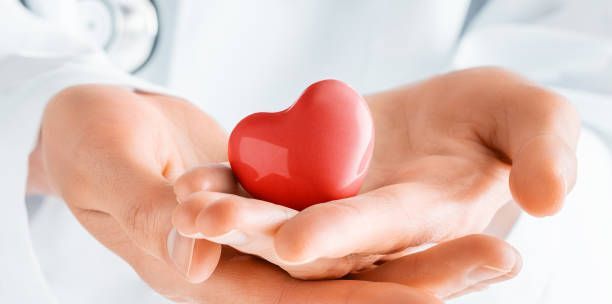Is Root Canal Treatment (RCT) Safe?

Short answer: Yes.
Long answer:
Before I start the answer, I would like to ask the following questions:
Is teeth cleaning safe?
Is joint replacement safe?
Is driving safe?
The answer to the above questions is yes, if they are performed according to the proper protocols.
The question we really need to ask is
“Is root canal beneficial?”, or
“Is root canal beneficial for me?”
I would like to shed light on some statements we encounter in the media regarding RCT safety. I hope to assist you in gaining proper and balanced knowledge, so that you can answer for yourself the question:
“Is RCT beneficial for me?”
“Root canaled teeth (RT) are dead organs, and it is dangerous to keep dead organs.”
RCT is performed on teeth that are irreversibly inflamed and/or infected. That means the pulp (soft tissue inside the root that contains blood vessels, nerves, and lymphatics) of these teeth are in the process of dying or already dead (necrotic). There are also vital tissues on the outer surface of the roots: these are called periodontal ligaments (PDL) and they remain vital (live nerves and blood vessels) even after RCT is done. This is why we can still feel the pressure applied to a tooth even after RCT is performed. Root canaled teeth are not dead: they are partially alive. If pulp infection is untreated, however, it will eventually affect the outer root, PDL and bone.
Our bodies exfoliate dead tissues. This occurs naturally and without our help. If the tooth is 100 % dead, both inside and outside, our body will start the “exfoliation” process on its own. This is seen in traumatic tooth injury. When the tooth is injured/damaged irreversibly inside and outside, a process called resorption starts. This is a rejection process: the surrounding tissues will eat away at the tooth. If an irreversible injury, however, occurs on the inside only, we can still perform RCT and extend the life of the tooth.
Many holistic societies advocate extraction of infected teeth and recommend implant. Implant is placing a foreign inorganic material in our body. By definition, inorganic implants are without life (or dead). It is crucial that our body accepts it as its own. All implants (teeth, joints, organs, etc.) have to deal with our body’s natural defense system, rejection. The success rate of any implants depend on the acceptance of the implants by our body. Even when implant is accepted, with time, there is always implant related deterioration. In case of tooth implant, there will be bone loss surrounding the implant over time. Properly maintained natural teeth, with or without RCT, will cause none to little (natural aging) bone loss. This is why it is crucial to keep natural teeth (with or without RCT) around a dental implant to maintain the maximal bone level for the implant.
When our current medical treatment reaches its limit, implants provide ways for us to extend the function of that body part. However, we do not advocate joint replacement or organ transplant when we still have reasonably functioning parts. As long as the body accepts and maintains “root canaled teeth”, I cannot advocate extraction/implant over retention of root canaled teeth: benefits do not overweigh. This can possibly change with the advancement of medicine and technology. At this time, however, my recommendation is to retain the natural teeth as long as they are functioning and causing damage.
“Root canaled teeth” (RT) can still harbor bacteria as there is no guarantee that all bacteria are removed during the procedure."
I agree. We can never know if 100 % of the bacteria were removed during RCT. A study that is often quoted by those who advocate extraction, reports that bacteria were found in 100% of the sampled extracted root canaled teeth. The flaw of this study was to assume that this sampling represented all root canaled teeth. Not too many people seek to pull their healthy/functioning teeth. It is reasonable to assume that this study sampled unhealthy teeth.
Let’s assume, however, that all root canaled teeth have bacteria.
Should we advocate extraction of all root canaled teeth that are still functioning and not causing damage to the surrounding bone? I say, no.
Should we open up all root canaled teeth and culture* the roots to see if they have bacteria? If they are positive for bacteria, should we recommend pulling these teeth, even when they are without any problems? I say, no.
In case you said “yes” to the above questions, you can consider other infections that occur in our bodies: Urinary tract infection, Diverticulitis, sinus infection, Conjunctivitis, Pneumonia, etc. If your doctor prescribes antibiotics for these conditions, are all bacteria gone from the area of the infection? No.
Then do we cut out the parts? No.
All medical treatments, do not provide healing. They provide the condition where our body can start the healing process. Even if we can perform the most perfect procedure and get rid of 100 % of all pathogens (if that is possible), when the patient is immunocompromised, healing will be a struggle or may not occur. On the other hand, there are numerous cases where healing occurs despite the treatment (due to less-than-ideal circumstances, or even clinician error). I know 100 % of all doctors see this routinely. The most important factor in all our healing is our immune system.
Properly performed RCT provides the condition where our body (of fair health) can recover from the injury, whether 100 % of the bacteria are removed or not (of course, we endodontists, always aim to remove more and more pathogens with the advancement of endodontics). It is our body, the immune system, that makes the recovery possible.
Our body was created to exist as a whole as an incredibly wonderful, complex, and inter-dependent system. Maintenance of the body as whole, as long as possible, is crucial in optimal health.
"Root canaled teeth are the cause of all or some of the health conditions."
This was stemmed from focal infection theory formed around 1900. Its great popularity spanned from 1930 to 1950 when, with the aim to remove all the foci of infection, drastic surgical interventions were performed. Many functioning teeth were removed by well-meaning doctors. My mother-in-law who suffered rheumatoid arthritis since her 20’s, had all her teeth extracted in her 30’s per her doctor’s recommendation. Unfortunately, today, she still has arthritis (worsened over time) and none of her teeth. There is correlation between oral health and overall health. But the error of the past focal infection era was its treatment approach. We need to improve oral health and function via recovery and maintenance and NOT removal.
I have watched testimonials of individuals in documentaries, who stated that they developed cancer from amalgam filling or RCT. Amalgam has mercury in it and I believe it needs to be carefully re-examined for its ingredients and safety. I hope that our new health secretary and ADA work together to give us the proper guidelines. However, what do we do if we already have “silver” fillings? Some holistic dentists advocate removal of all existing amalgam fillings. But I feel that this is borderlinking the same approach that our medical community took during the focal infection era. We also need to ask if the removal of amalgam releases mercury which is otherwise, incapsulated/dormant? Keep in mind that every properly performed dental and medical procedure causes inflammation. Sometimes, the body does not recover from the procedure and require an additional procedure to correct it. It is not rare (though not routine) RCT is warranted following a routine dental work. I read an article of a holistic dentist advocating a toxicology blood work prior to amalgam removal. I agree with his view. If the patient shows no signs of heavy metal toxicity, amalgam removal should be an elective procedure and not an automatic recommendation.
When it comes to root canaled teeth, however, it may be difficult to see if root canaled teeth are causing toxicity via blood work. But this is my approach. When I consult a patient who is highly immunocompromised, or who has multiple teeth with properly performed yet failing root canals, or if the particular tooth infection at hand has already caused vicious systemic problem (ex. sepsis), I recommend extraction.
Is Root Canal Treatment beneficial for you?
*it is difficult to culture root canals to get accurate results as many of the bacteria die if they are exposed to oxygen.






